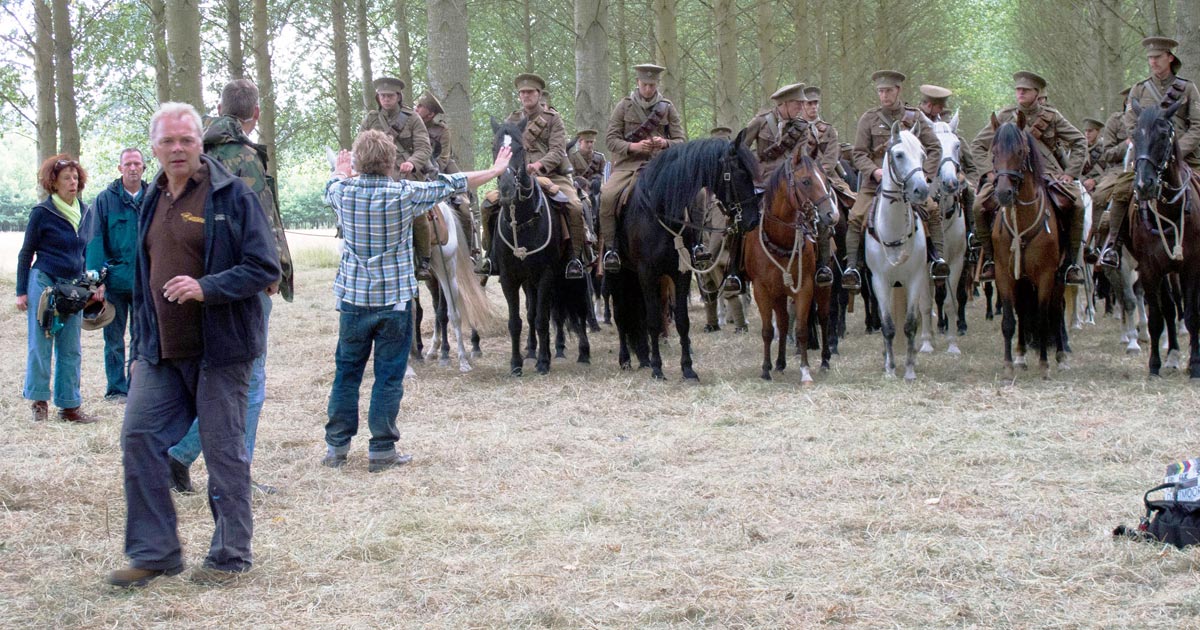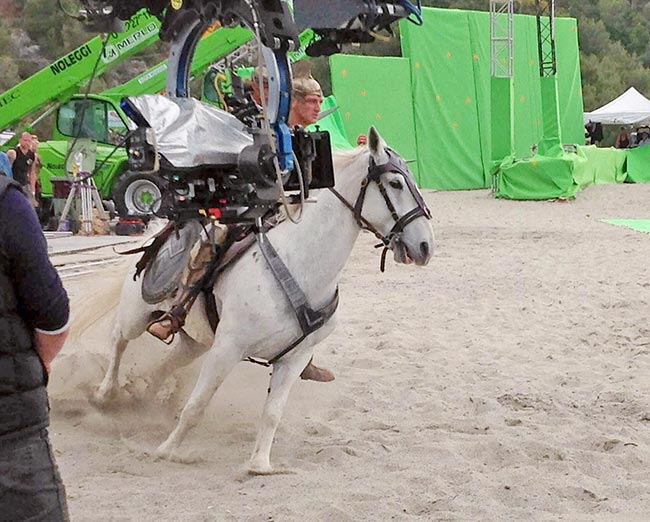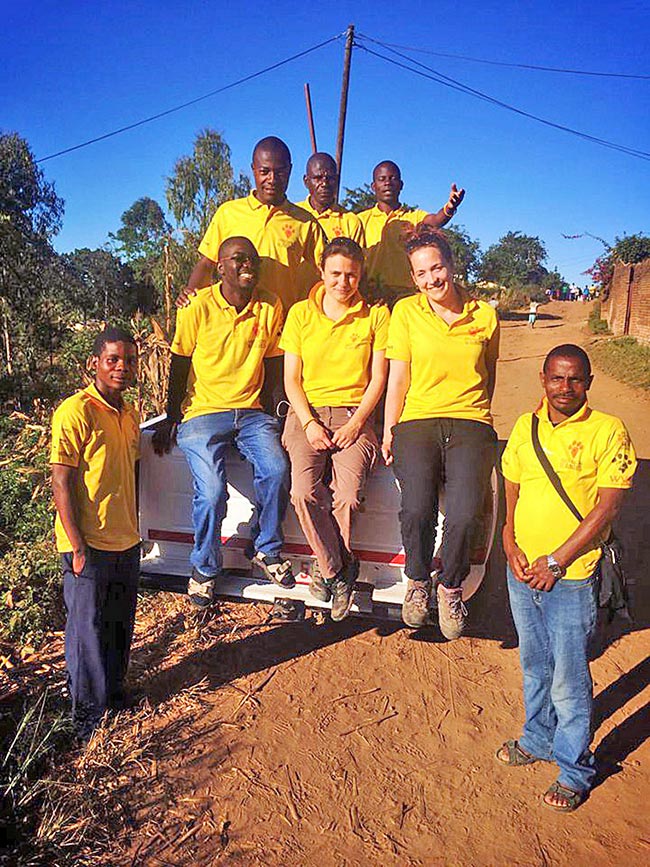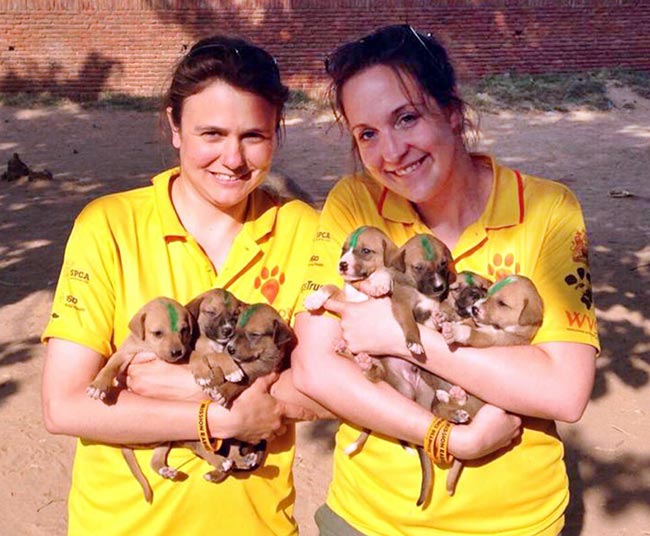15 Jan 2018
Samantha Castle reflects on what has kept her happy in mixed and equine practice for the past 14 years in the latest Veterinary Times Practice Notes column.

A scene being shot on the War Horse film set.

As mental health, depression and suicide become, rightly, more discussed and addressed in our profession – and it appears a certain level of discontentment occurs within individuals in clinical practice – I was wondering what had kept me happy in mixed and equine practice for 14 years.
Firstly, I would say I am far from qualified to talk about mental illness and, therefore, will not touch on this. Rather, I want to establish what little things we can do to increase our general happiness and decrease our frustration and discontentment when working in practice. These feelings of disgruntlement happen to us all, I suspect, from time to time, and the aim is to not allow them to grow into a big seed of resentment towards your working life.
The increase of social media within the veterinary profession to discuss the different problems associated with being a vet in practice, and the many other options available to us all with a veterinary degree, has made it more obvious to me many individuals are not happy with life in practice. This is, no doubt, no different from previous generations of vets, but we now discuss it more openly and air our views more easily. It must be said our profession is pulling together to offer support and advice to anyone who needs it, which is fantastic and a credit to those who have established these groups.
Happiness is an individual thing, and some people will never find the same enjoyment and satisfaction in clinical practice I do. I will not sugar coat what practice life can be like, but most of us still have a lot of love for the job, and want to continue working within the profession, despite the long hours, difficult clients and practice politics. The aim is the good always outweighs the bad.
In my opinion, most people start to get disgruntled with practice life when they see an increase in stress or work overload; for example, a run of poor outcomes, very busy out-of-hours or demanding or emotional clients. These added pressures can lead to unhappiness, which may be temporary, such as “I’m just having a bad week”, or something more long term.
So, how do we combat this and stop it developing into chronic discontentment?
Well, having just returned from six weeks in Scotland looking after horses while a movie was made, I can honestly say the old proverb “a change is as good as a rest” seems to be true.
Everyone suspects film work is glamorous and easy. I admit it has much less clinical work on a day-to-day basis than an equine practice, but film work involves long hours – often 4am to 5am starts and 8pm to 10pm finishes, with the occasional night shoot thrown in and constantly being on-call – and it’s far from Bond girls, fancy cars and glamorous locations. On top of this, like racecourse work, when the shit hits the fan, it really hits the fan.

My time in Scotland also involved hours of standing knee-deep in bogs with the mud threatening to come over the top of my wellies, and as many layers of clothes as I could physically wear. However, it was seriously fun, and I worked closely with people who I now call friends and with horses that, despite having a tough job, are true professionals and a pleasure to treat. Not only this, I have come back to my day job at the RVC feeling fully refreshed and raring to go.
I am lucky for two reasons. Firstly, the opportunity to do some film work has arisen in my career thanks to my old employer (Nick Snookes, seen left in the picture taken on the War Horse film set in 2010). Secondly, I have a boss, Jason Tupper, who is a yes-man. By that I mean his philosophy is the answer is yes as long as it is feasible. So, if anyone in our team has an idea or is keen to do something different, he will look into the possibility and is willing to say “yes”, knowing we will be more motivated and generally happier if we are allowed to broaden our horizons and do something different once in a while.
Therefore, if you are starting to feel down, frustrated or discontent with practice work, and it is possible to do something different – do it. Whether it is temporary or a more long-term change – do it. Nothing is more important than being happy in this life, so don’t let it get you down and get out there and find something that will help your mental well-being.
I know, I make it sound easy, and it always isn’t, especially if you have family or personal circumstances that do not allow you to change things. You also have to find that “other thing” that brings enjoyment to you and I have been really lucky with the opportunities offered to me. So, if something comes along, grab on to it and give it a go. In my case, it has given me a great balance, and I still love my day job in equine practice.
Many options are available that can refresh and clear your head, stimulate your body and brain, and breathe new incentive, verve and fire into you to return to your practice job. For example, friends and previous work colleagues of mine, Lisa Angus and Louise Scott, volunteered for Mission Rabies in Malawi and India (www.missionrabies.com). They helped to vaccinate more than 35,000 dogs against rabies alongside 60 other international volunteers. They also educated the local population about dog behaviour and the treatment required if they were bitten.

Mission Rabies has vaccination drives and education programmes running in Africa, India and Sri Lanka, and these have dramatically reduced the number of child deaths from rabies in these areas.
Both describe their time in Malawi as “life-changing” and would recommend the experience – which helps both the canine and human population – to anyone seeking volunteer work and a break from the norm. After discussing their experience with them, I looked online for opportunities and many options are available for volunteer work with small animals and equids, such as www.spana.org and www.wvs.org.uk

Sometimes, just a day of CPD or a client evening can invigorate and incentivise you to have a more positive attitude to your everyday work. Studying towards a certificate or specialising can increase your enjoyment of work, as you are much more likely to be happy if you are doing something you love. If you are unhappy in your job then look at other options. Locum work can really open your eyes to what lies within different practices and gives you chance to weigh up what you really want. A change in sector within the veterinary profession may also be an option; consider an industry, government or laboratory role.
Having recently started working for the RVC equine practice, I also find teaching and interacting with students can be very rewarding. Working together in a team can promote good feeling and a sense of worth.
The key to happiness is different for every individual. The aim is to find out what unlocks yours. I still love my work in clinical equine practice, but strive to try different things, learn and teach something every day and broaden my experiences as much as possible. My advice would be to grab every opportunity, embrace different possibilities, find bosses as awesome as mine and get as much enjoyment out of your work as you can.
Spice up your life and grab happiness with both hands.